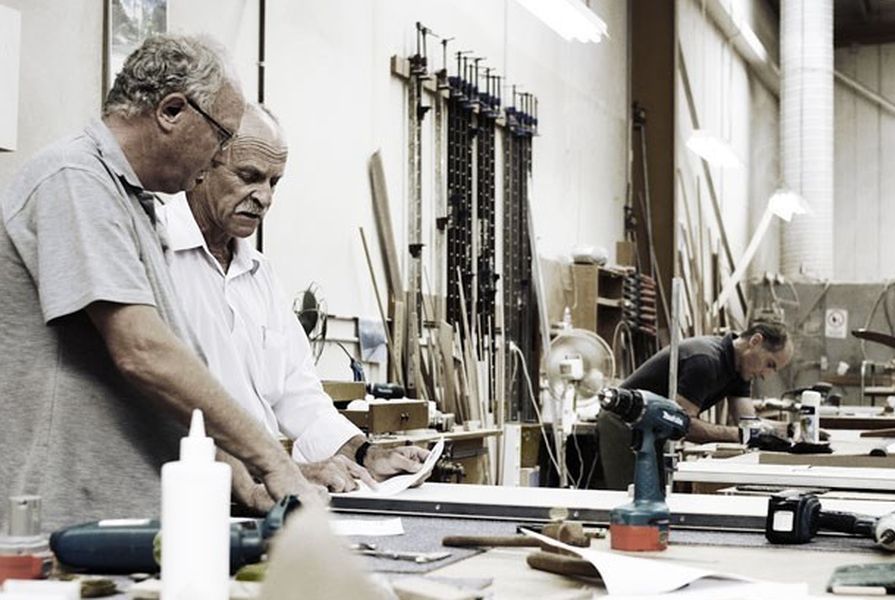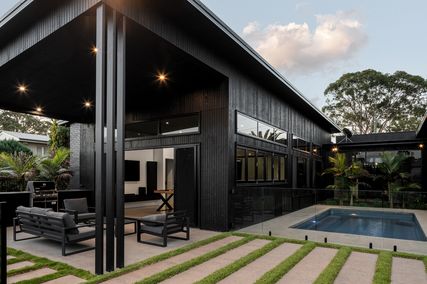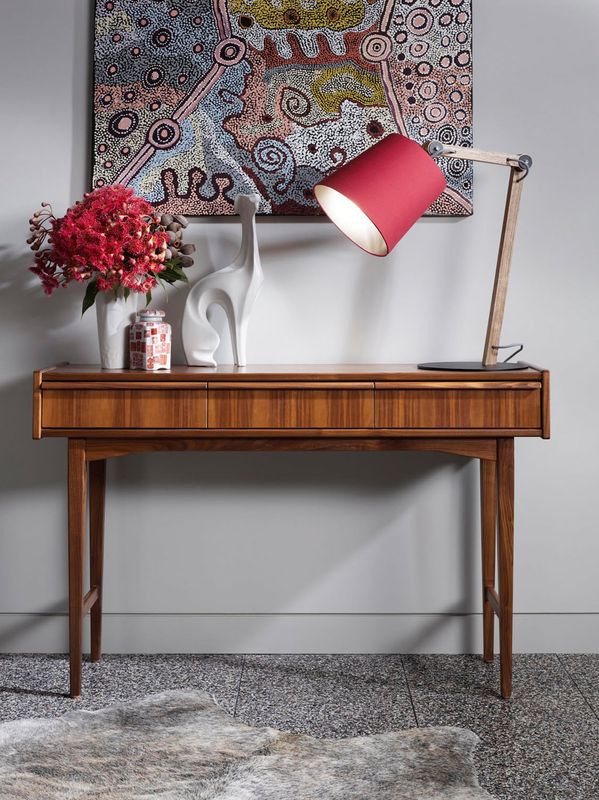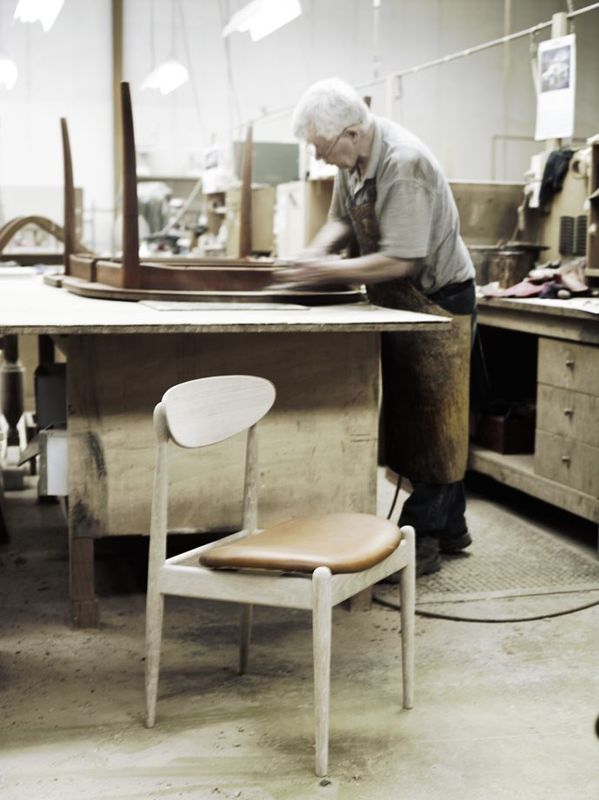In the early 1990s I picked up a Parker armchair off the footpath, needing little more than a light sand and a lick of Danish oil. In the late 1990s I snapped up a Parker table at a garage sale, and a buffet at an op shop – both for a song. By the noughties, however, luck was running out: Parker (like me) was verging on “vintage,” with price tags to match.
Parker furniture has been a household name in Australia for over half a century, and in recent years, collectable. Not just for its provenance, but for the simplicity of design and quality of craftsmanship. Though It’s not been made for many years, in 2013, Parker is back, but not as we know it. Founding designer, Tony Parker, has teamed up with bespoke joiners Covemore Designs to reintroduce selected pieces from his mid-century range, with help from Workshopped (promoters of Australian design).

Tony Parker (right) at the Covemore Designs Sydney workshop.
Image: Florian Groehn
The original collection was made in teak – the timber of the day – but the new series of chairs, tables and sideboards are in white oak or black walnut, with hand-rubbed natural finish or matt lacquer. The paler palette underscores the fine lines of these pieces, “and it’s more in keeping with today’s style of furnishing,” observed Parker during the launch at the Workshopped showroom in Surry Hills. Many of the original craftsmen he employed are today working on the new range in the Sydney workshop of Covemore Designs, so it’s a renassiance on many levels.

The furniture is produced today by Covemore Designs in Sydney with many of the original Parker craftsmen.
Image: Florian Groehn
Tony Parker studied industrial design at East Sydney Technical College, and later worked at London’s John Lewis department store, before returning to Australia and refocusing his father’s industrial furniture supply company (JW Parker). In the 1960s he released the mid-century range as an antidote to the fussy Britain-centric fashions, displaying his Scandinavian-influenced pieces in specially designed room settings that showed people how the furniture would work in their homes.
His philosophy was simple: “Things should be well designed and well made, to last a lifetime. And it should be made to fit the way we live, not the other way around. Good furniture should be seen and not heard. People should be left thinking – ‘what a lovely room’ rather than ‘what a remarkable chair.’
“When we introduced our mid-century range, it became popular very quickly because it was beautiful and simple, functional, and expertly crafted. It’s incredibly satisfying to see it being made again half a century later, because the new technology allows us to refine the pieces even further, tapering the edges of arms and legs even more. It’s also satisfying to see how relevant these designs still seem to be, and that’s something we couldn’t have predicted when we first started out.”






















